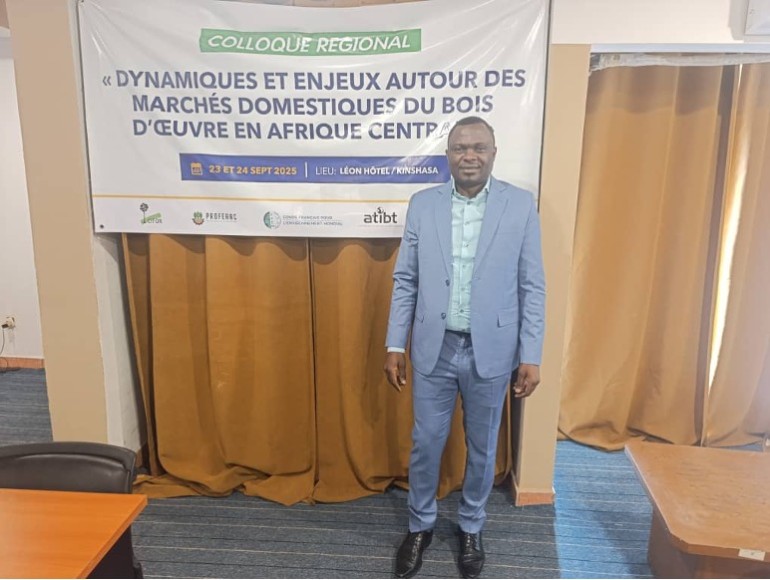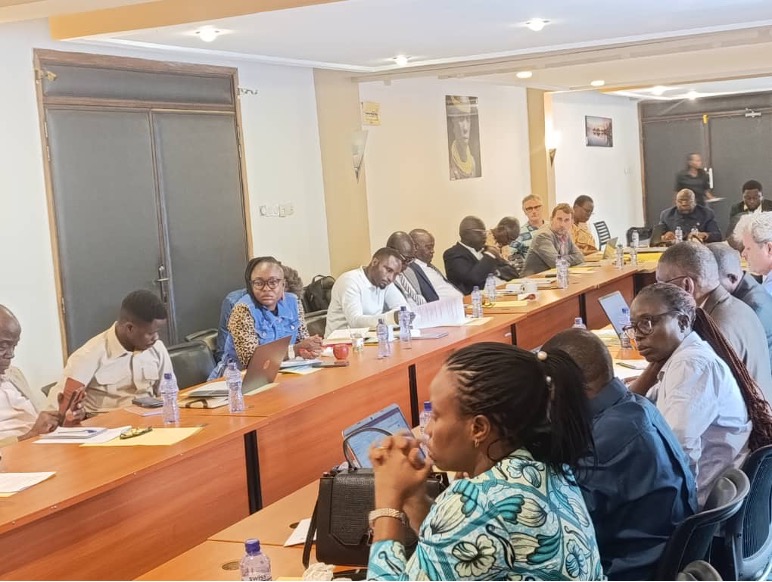

03.10.2025
From September 23 to 24, 2025, ATIBT took part in a regional symposium held in Kinshasa (DRC) on the dynamics and challenges of domestic timber markets in Central Africa.

This event, co-organized by CIFOR and supported by several regional institutions such as COMIFAC and the ministries responsible for forests and the environment, brought together a diverse range of actors from the forestry sector: researchers, government representatives, industrial operators, artisans, NGOs, and technical partners.
The overall objective of the symposium was to ensure an efficient and sustainable supply of domestic timber markets in Central Africa.
More specifically,
-To characterize the evolution of domestic timber markets in Central Africa over the last decade;
-To identify the factors hindering the supply of legally sourced sawnwood in national markets;
-To promote legally sourced and sustainable sawnwood to different types of consumers in Central Africa
A rich and structured program
The symposium was organized around several sessions, followed by round tables:

ATIBT actively contributed to the discussions, notably through presentations by Alain Bertin TIOTSOP on the valorization of industrial by-products and incentive taxation, and by participating in the strategic round tables.
Key recommendations put forward by ATIBT
Following the discussions, several recommendations were made to strengthen domestic markets for legal and sustainable timber:
Towards a stronger regional dynamic
This conference marks an important step in recognizing the strategic role of domestic markets in the sustainable management of forest resources. ATIBT reaffirms its commitment to supporting local stakeholders, promoting traceability, and backing public policies that favor legal, accessible, and locally valued wood.